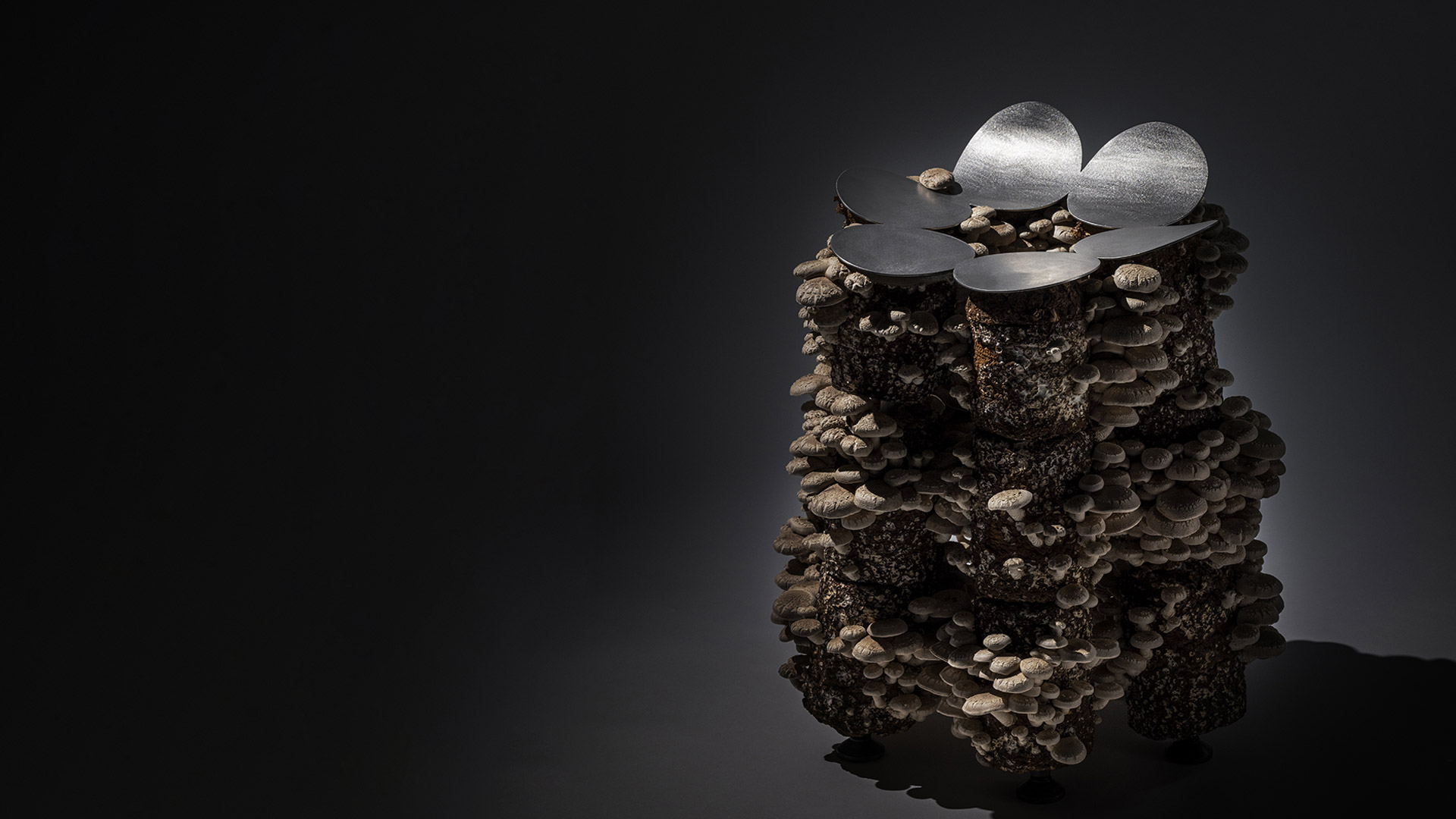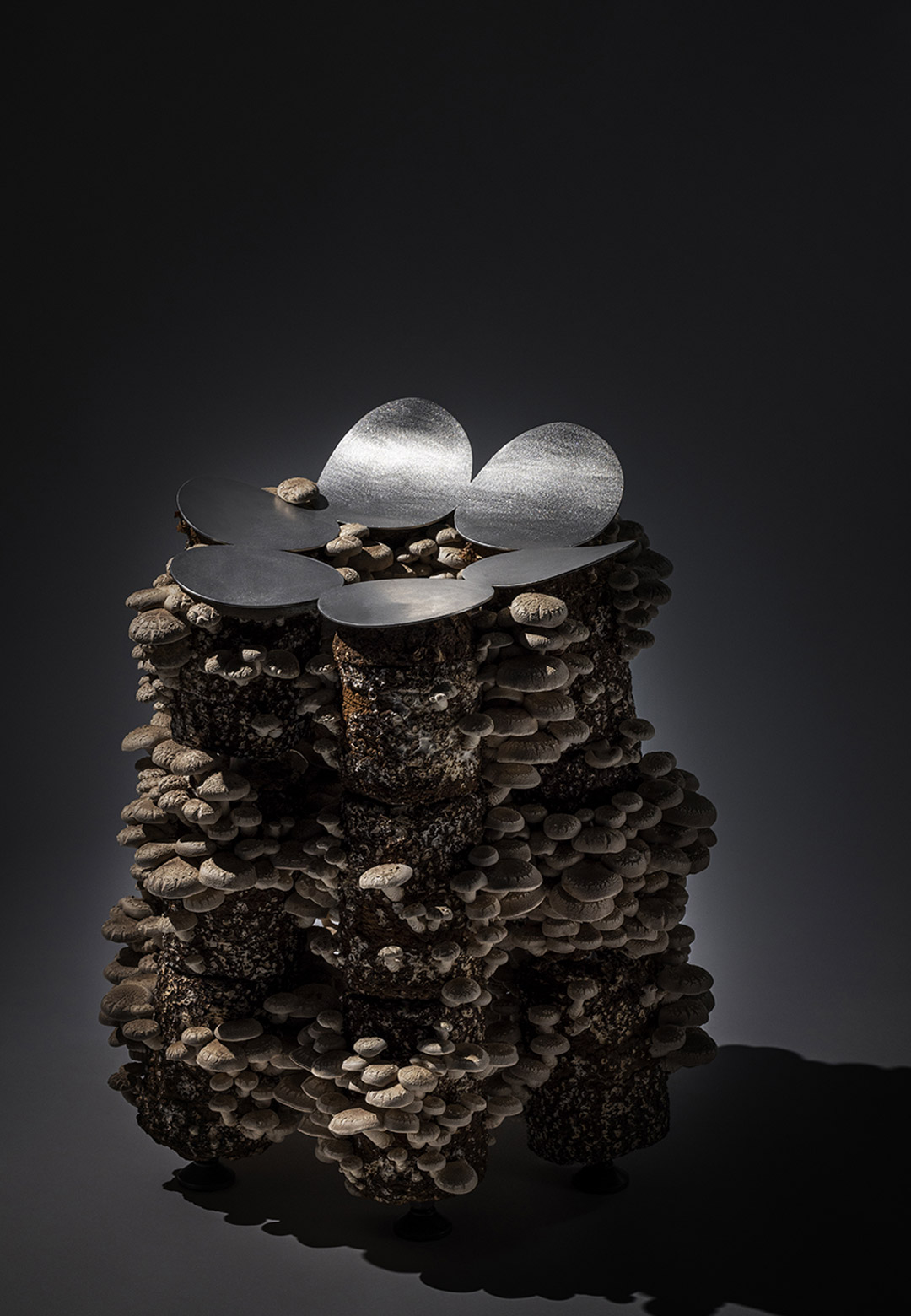Flourishes of creepers laden on entryways and arches, raw and unfurnished logs upturned to feature as seatings, or Banyan roots twirled and woven into ornamental hangings or seatings—elements and decoration that feature nature and its entities evoke a yesteryear charm, a reminder of times when contrivance was minimal. Apart from serving as aesthetic additions to functional objects and common spaces, pure and unprocessed materials also assuage the ill-effects of unsustainable designs. Catering to both demands, Japanese design studio h220430’s founder and principal designer, Satoshi Itasaka designed the Fungi Stool. As the name suggests, the stool design is primarily made up of mushrooms, which are assembled and held together with the help of a stainless steel and wood core and skeleton.
Citing the spread of the coronavirus as the inceptive reason that guided the creation of his stool, architect and product designer Satoshi Itasaka says, “In the past three years, bacteria and viruses have drastically changed our lives and values. There is a huge amount of data available on this topic across the world. However, determining which of this information is correct is difficult. In such circumstances, I felt it was necessary to re-learn about nature and that it was important to try to understand it before undertaking scientific challenges. This design was born out of my experience of going through these difficult times.”
The role of bacteria and fungi in our ecosystem is paramount. These organisms not only recycle natural waste, plant remnants, and animal carcasses but also produce important nutrients that facilitate the normal growth of plants. These are some of the learnings that the Japanese designer assimilated from his research on microbial life. “There are about 100 trillion bacteria in our bodies. The total number of human cells is about 37 trillion. Therefore, we live in symbiosis with about three times as many bacteria as our own cells,” Itasaka explains. Ushering people to understand and follow the lead of nature’s scavengers, the designer continues, “They are the ones we should follow for we are constantly putting a burden on the earth in terms of the global environment.”
Amidst the sanitisation drives that are commonplace in the post-covid world, Itasaka urges people to learn more about the microbes in order to deal with them rather than mindlessly resorting to their massacre. The organically growing Fungi Stool is a tangible tool that prompts this conversation. “I found that the fungi grew unexpectedly on the stool; they blossomed like flowers, producing numerous beautiful mushrooms,” the designer says.
The Fungi Stool, built using natural materials with the help of experts from Japan, serves as a suitable example of sustainable design. The furniture design encapsulates a series of mushrooms huddled together to form the base and a circular seat made out of six wooden discs. Itasaka took the help of researchers and farmers from Japan, who have extensively studied and practiced the art of growing mushrooms. “Japan has a long history of artificial mushroom cultivation. This is because mushrooms were an important source of nutrition for local people,” Itasaka says. In collaboration with the experts from Japan, Itasaka began the project by creating an feasible environment for the growth of mushrooms. “Because mushrooms typically grow in the fall, we began preparations at that time last year, and we managed to harvest them after 12 months. Their form, although grotesque, was very beautiful and this work was a really inspiring experience,” the designer adds.
Satoshi Itasaka, under his studio h220430, derives inspiration for his projects from nature and its processes. Sometimes mimicking the forms of natural entities and at other times mirroring their actions and processes, Itasaka attempts to address everyday problems in modern society—either by spotlighting rare phenomena or by drawing attention to an alternative perspective of viewing known facts and functions. The designer believes that there is more scope for the development of mushroom furniture and plans, in the future, to build a collection of furniture and objects—using the fungi—with suitable furniture manufacturers.






 Sign in with email
Sign in with email










What do you think?